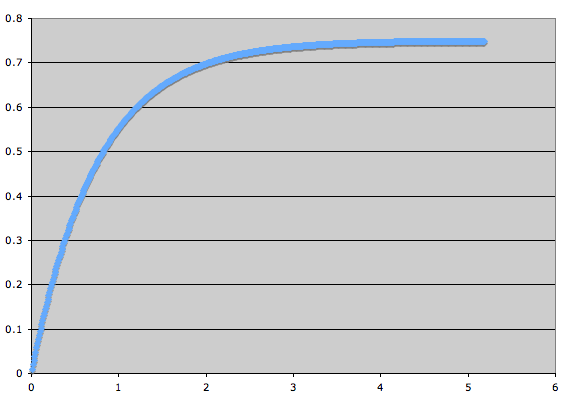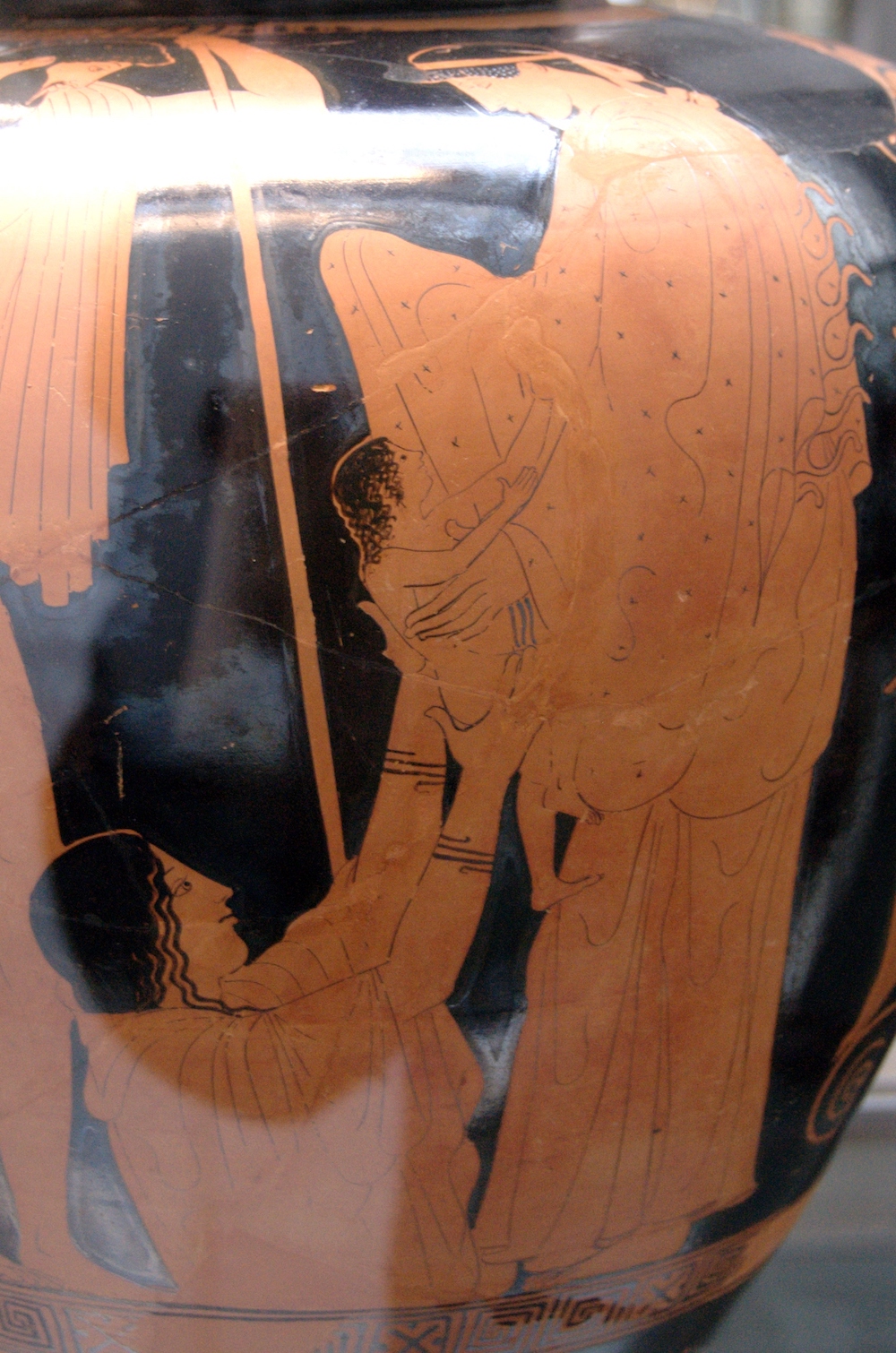
Assignments for Monday's class:
Old homework:
Here is how I envisioned the last two answers, Jukes Cantor spread sheets are here)
Jukes Cantor relationship (observed difference p versus number of substitutions d) for nucleotides. (A derivation is here).

Discussion of what is living and what not (see class 4)
Is there a definition of life? NASA's working definition of life: "life is a self-sustaining system capable of Darwinian evolution"
Does Darwinian evolution depend on a biopolymer that acts as genetic material?
Gaia hypothesis, levels of selection. Are viruses alive?
Can living systems be divided in smaller sub-systems that are themselves alive? Or, is life a property of the larger system? The ecosystem of the Sargasso sea that includes algae, bacteria and phage (viruses that live on bacteria). The cyanophage play an important role in the system as predators of the primary producers. They lyze the cells allowing for recycling of limiting elements. The phage are part of a living system, but usually are not cindered alive themselves.
The Gaia hypothesis argues that the whole biosphere should be regarded as a single organism, with its own homeostatic feed back loops. (Image of 5 kingdom hand).
Problems of the hypothesis:
- Earth also includes many feed-forward loops (e.g., melting ice caps lower the albedo, which leads to more warming*). Relying on Gaia's regulatory mechanisms can provide a false sense of safety.
- How does a single organism evolve? With only one Gaia, who would natural selection work? - Natural selection could work with in subsystems, although this often does not work well -> cancer.
* Lovelock and Watson developed the Daisyworld model (simulation here), in which black and white Daisies stabilize the climate of the model planet. The release of DMS heat stressed algae creates a Daisyworld like feed back loop, because it acts as nucleating agent in cloud formation.


Slides on Mutual Aid versus (?) Natural Selection here
What are alternatives to evolution by natural selection?
In biological evolution, what processes might go beyond natural selection?
Do these processes conflict with "Darwinian evolution" or only with the modern synthesis?
- gene transfer
- selfish genetic elements / molecular parasites
- fusion of lineages (e.g., eukaryotes, lichen)
- group selection
- non-random mutations
- directed mutations
- mutationism (big jumps due to mutations, aka Hopeful Monsters)
- genetic drift
- gratuitous complexity / neutral pathways towards complexity
Natural Selection and EvolutionWhen does "evolution" occur? An algorithmic approach."Darwin's Dangerous Idea" by Daniel C. Dennett, Chapter on Evolution as algorithm is a reading assignment for Monday, Sept. 13. [available through WebCT]What is needed for evolution to occur?(Note, this is different from stating that this is all that occurs in evolution)
What processes in biological evolution go beyond inheritance with variation and selection? (We'll discuss many of the following later in the semester.)
|